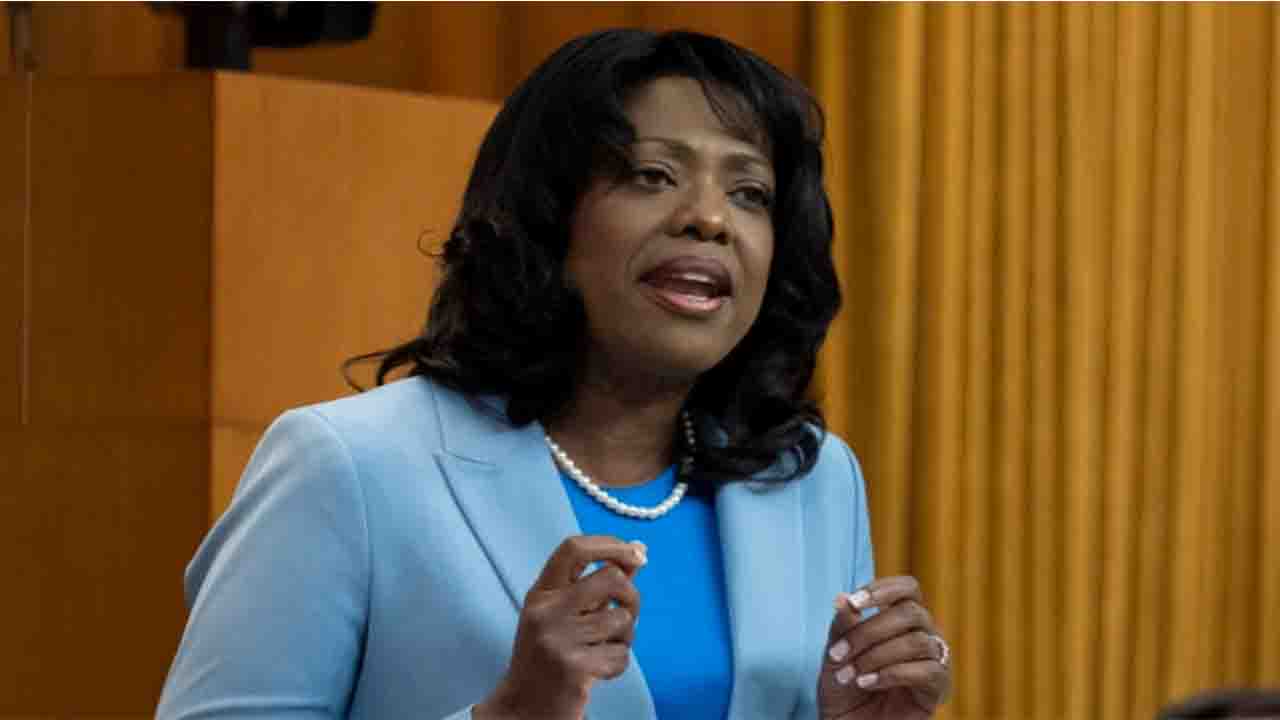Commonwealth _ Conservative Member of Parliament Leslyn Lewis is raising concerns about the Liberal government’s allocation of nearly half a million dollars to the World Economic Forum (WEF) for the production of an environmental report promoting the carbon tax. In a social media post dated March 18, Ms. Lewis criticized Prime Minister Justin Trudeau for using Canadian taxpayer funds to pay the WEF almost $500,000 for the New Nature Economy Report, which she claims justifies his carbon tax. She argued that global interest groups like the WEF cannot be trusted to prioritize the prosperity of Canadians.
Ms. Lewis has been a vocal critic of the WEF within the Conservative Party, frequently uncovering information about collaborations between Ottawa and the WEF through access-to-information requests available to Members of Parliament. Her inquiries have revealed substantial financial engagement between the Canadian government and the WEF, totaling nearly $23.5 million since 2015. The WEF, a global think tank known for hosting events attended by influential figures from politics and industry, states its mission as improving the state of the world and shaping global, regional, and industry agendas. However, critics like Ms. Lewis argue that the organization wields undue influence over democratically elected governments.
WEF Chairman Klaus Schwab has previously acknowledged the organization’s influence within government cabinets, including that of Prime Minister Trudeau, through programs like the Young Global Leaders (YGL) initiative. Deputy Prime Minister and Finance Minister Chrystia Freeland, an alumna of the YGL program, serves on the WEF’s board of trustees, though her office and department have not responded to inquiries regarding her involvement with the group. Ms. Lewis has highlighted the taxpayer-funded New Nature Economy Report as part of the Conservative Party’s campaign against the April 1 carbon tax hike. This increase will see the tax rise from 14.31 cents to 17.61 per liter of gasoline in most provinces across Canada.
The report, funded by Environment and Climate Change Canada (ECCC) to the tune of $493,937, aims to establish the business and economic case for safeguarding nature. According to ECCC, the report targets senior decision-makers in governments and businesses who influence to shift towards more sustainable practices. Released in 2020, the WEF report acknowledges the Government of Canada and describes nature as being in a state of crisis, proposing solutions to address environmental challenges. It emphasizes the interconnectedness of climate change, nature loss, and water scarcity, advocating for simultaneous efforts to achieve a decarbonized, nature-positive world.
The report also highlights the necessity of government intervention, stating that business action alone is insufficient to develop a nature-positive, low-carbon economy. It suggests measures such as carbon taxes as game-changers in incentivizing sustainable practices.
The Liberal government staunchly defends the carbon tax, portraying it as a pivotal tool in the battle against climate change, aimed at curbing emissions. They assert that the majority of households benefit from the tax through carbon rebates, contending that eight out of ten households receive more money back than they pay in taxes. However, this assertion has been met with skepticism and scrutiny, particularly from the Parliamentary Budget Officer, who has raised doubts about its accuracy and effectiveness.
Environment Minister Steven Guilbeault provides an additional perspective, framing the carbon tax as a mechanism for wealth redistribution. He argues that by placing the financial burden on the wealthiest individuals, the tax effectively redistributes wealth among the populace. Guilbeault, aligning himself with socialist principles, maintains that this redistribution is a fundamental aspect of the tax system, ensuring that those with greater means contribute more to environmental efforts while providing relief to those with lower incomes. While the Liberal government touts the carbon tax as a means to combat emissions and provide financial benefits to the majority of households, Guilbeault’s characterization underscores the broader social and economic objectives behind the tax, emphasizing its role in redistributing wealth and fostering environmental responsibility.








